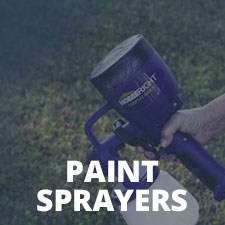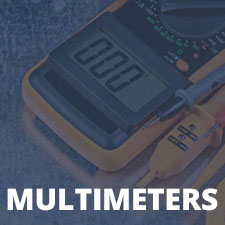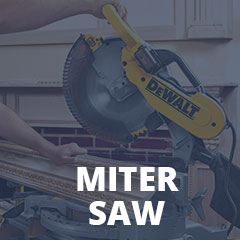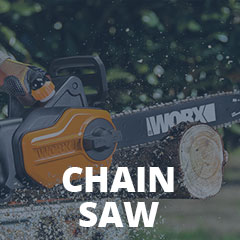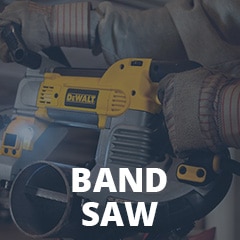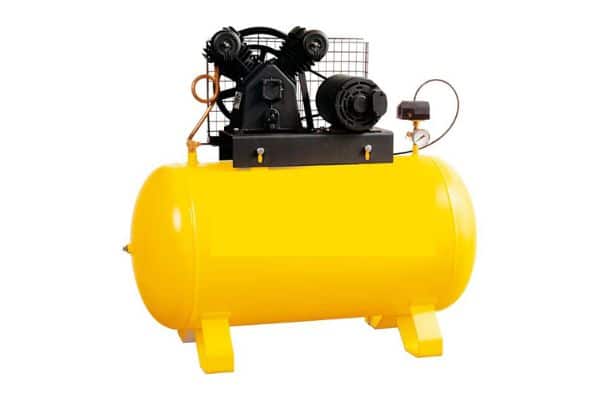
If you’re a pneumatic powerhouse user — understanding how to make an air compressor quiet will create a more enjoyable working experience, increase your personal safety, and save arguments with your wife and neighbors.
These machines are unmatched for energy delivery when driving paint sprayers, impact wrenches, and hammer drills — but their loud operation can be both an annoyance and a health risk.
This how to make a compressor quiet article exposes the trade secrets behind muffling pneumatic units — delving into the reasons for their exaggerated noise, and offering straightforward and effective hacks for a quiet life.
Why Are Air Compressors So Darn Loud?
Before I get down into the detail of how to make a compressor quieter — it’s helpful to understand why they’re not exactly the tools of tranquility.
If you own a pneumatic unit, you know that they are more vocal than your wife when she discovers you’ve been having sexy times with her sister. Power up your paint sprayer or staple gun, and within seconds the whole street knows about it.
There are a multitude of reasons for this, the most important factors being:
Working Process
I know it’s a cliché — but you can’t make an omelet without breaking eggs. And, in very much the same spirit, you can’t compress air without making noise.
Basically, if you’re going to use a pneumatic tool, you’re going to generate some sound — unless you completely rewrite the rules of physics.
The reason for this is the internal working process of compressed air units. The majority of air-driving machines — especially the home-user favorite, the pancake compressor — are powered by a reciprocating piston.
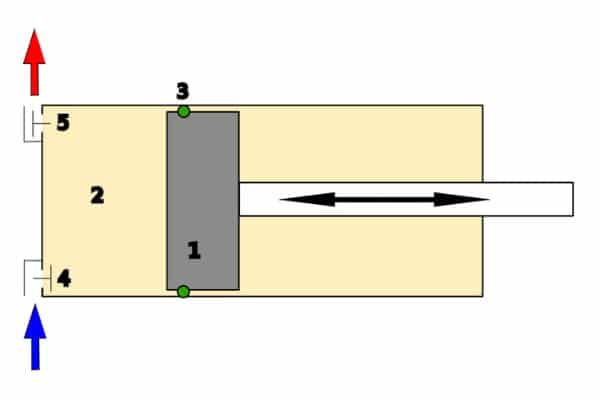
Reciprocating Piston Compressor Airflow – Yy, CC BY-SA 3.0, via Wikimedia Commons
In short, they work by continuously ‘hammering’ air inside a cylinder — making the distinctive bang-bang sound emitted by these pneumatic units. And, while smashing air isn’t exactly the same as punching a tack with a handheld hammer — it still creates friction and air displacement that creates sound.
While you can’t remove the piston to deaden the noise — unless you want a machine that doesn’t work — you can purchase quieter units that use a different compression method — namely the rotary screw and rotary vane.
For more information on the working processes and types of pneumatics — check out my complete guide here.
Vibration
Whether you have a reciprocating or rotary air compressor — it contains a plethora of moving parts. These components generate vibration, and, if you remember your high school physics classes — sound is nothing more than a vibration.
The noise generated by vibration can be from the internal parts, connecting bolts and screws, and compressor location.
Location
One of the most common causes of noise — and the most straightforward to troubleshoot when you want to make air compressor quieter.
If your machine is located on a hard and unforgiving surface, such as a concrete garage floor, it’s going to generate more sound than if positioned on a more cushioned base.
Furthermore, if in your eagerness to set up and start using your shiny new compressor you failed to make the unit level, this will also elevate noise creation.
Build and Quality
If you purchase a bargain-basement, low-quality air compressor — the chances are it will be significantly noisier than a higher-priced premium unit.
Cost-saving measures during the design process — such as inferior grade metal housings, thin build materials, minimal soundproofing, and loose screws and bolts will amplify sound.
Intake Pipe
Sucking creates noise — whether operating your vacuum cleaner, drinking a McDonald’s strawberry milkshake, or enjoying oral sexy times.
For the air to be compressed, it has to enter the machine — achieved through the gas being pulled into the unit via suction. The design, shape, and build of the intake pipe can contribute to a loud air compressor.
Exhaust Pipe
What goes in must come out. Just like in your car, waste engine gasses are expelled by the compressor through an exhaust pipe. And similarly to having a large bore or broken automobile outlet tube — the shape and condition of the exhaust on your air compressor can determine noise levels.
The Importance of Making an Air Compressor Quieter
Trust me buddy — a seriously loud air compressor isn’t a sign of machismo, nor does it reflect the size of your manhood.
Sure, it may give you some pleasure in letting the world know you’re a serious DIYer who can tackle pneumatic machines. Furthermore, you might also enjoy annoying your idiot neighbor who never returned your lawnmower by powering up your air unit at 2 AM.
But, an over-loud machine can be a warning sign — indicating that it needs repair or maintenance. And secondly, a high-volume pneumatic powerhouse can damage your wellbeing.
Research from OSHA (Occupational Safety and Health Administration) explains that exposure to loud tools can cause health issues such as heart problems and hearing loss while also contributing to workplace injuries and accidents.
Furthermore, advice from the CDC (Centers for Disease Control and Prevention) indicates that prolonged exposure to noise over 70 decibels will damage your ears — with sounds exceeding 120 decibels causing immediate harm.
My three top tips are:
- Always wear ear defenders when using an air compressor.
- Opt for a quiet operation machine when buying a pneumatic unit.
- Follow my below hacks on how to quiet an air compressor!
How To Make Air Compressor Quiet — Six Top Tips
Time to restore peace and harmony to your garage, shed, or workshop! Here are my ultimate hacks on how to make air compressor quieter. Fuss-free, requiring few tools or engineering knowledge — even the novice pneumatic user can enjoy (relatively) quiet operation.
1. Ensure Your Compressor Is Regularly Maintenanced
Keeping your air compressor regularly serviced will not only cut down on noise production — but also increase its efficiency and extend operational life.
Sure, repairs may have to be completed by a professional — but the majority of day-to-day upkeep tasks can be undertaken by the DIYer.
You should check out your user guide for the manufacturer’s recommendations on maintenance for your particular machine. But, generally speaking, all models will benefit from:
- Ensuring all nuts and bolts are tightened.
- Cleaning the intake valve.
- Cleaning the exhaust valve.
- Checking hoses are in good condition without splits or holes.
- Exchanging the air filter.
- Regular draining.
- Cleaning the air tank.
- Lubricating the bearings.
- Refreshing the oil.
For more tips and advice on air compressor use and maintenance, here is my ultimate 101 to pneumatic powerhouse operation.
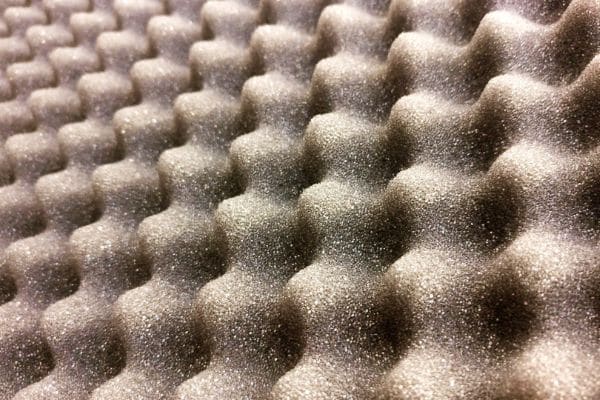
2. Wrap Your Air Compressor
Many premium compressor units already integrate extensive internal soundproofing. However, whether you have a high-end machine or a budget model — all pneumatic powerhouses will benefit from additional external noise deadening.
You can purchase third-party soundproofing blankets to wrap around your machine — a highly effective way of keeping noise to a minimum. Just ensure that you keep the inlet and outlet pipes clear!
3. Check Your Air Compressor Is Level
An unlevel air compressor will lead to excessive vibration, which creates noise. Just as a washing machine can ‘walk’ across the floor — an incorrectly positioned pneumatic unit will shake, wander, and be uncomfortably loud.
Use a bubble level to check that your machine is perpendicular to the ground — virtually all models have adjustable feet that allow you to compensate for uneven flooring.
4. Soften the Flooring
It’s the perfect storm — a metal piston hammering away inside a metal casing mounted on a concrete floor. There’s no surprise that your air compressor is loud.
While you can’t remove the piston or change the casing, you can fix the area upon which it sits. It’s unlikely that your wife will let you use your pneumatic machine on your soft, plush, living room carpet — so you need to take the carpet to your garage.
I’m not suggesting you rip up your home’s floor coverings for workshop use — but old offcuts, thick blankets, or doormats can all be positioned under your compressor to reduce vibration and sound. Alternatively, you can purchase purposely designed noise-absorbing ground blankets.
Always ensure that once placed upon a softer bed, your compressor remains level.
5. Position the Air Intake Outdoors
As discussed earlier in this how to quiet air compressor article — significant levels of sound are generated by air being vacuumed into the pneumatic machine. So, instead of the intake valve being in your garage — move it outside.
This extremely simple, yet effective method, can be achieved with nothing more than an industrial-grade rubber hose and worm drive clamp (jubilee clip). The theory and practice are straightforward, secure one end of the hose onto the inlet with the clip — and position the other end outdoors — either through a window, a door, or by drilling a purpose hole in the garage or shed wall.
Sure, this means that anyone enjoying a summer grill in your garden will have to suffer compressor noise — but you will be nice and quiet cocooned in your workshop.
Here’s a quick video explaining the technique:

6. Purchase a Quiet Operation Air Compressor
Ok, this only works if you’re in the market for your first, or a replacement, air compressor. But, choosing wisely with your purchase can keep noise to a minimum.
As highlighted earlier in this how to quiet a compressor article — opting for a rotary vane or screw machine will deliver quieter operation than a reciprocating piston. The downside being, they’re significantly harder on your pocket.
However, many manufacturers produce low-noise six-gallon (pancake) units that have been designed for minimal noise creation. Typically, these units offer increased internal soundproofing, an integrated muffler, rubber grommets between bolts and screws to reduce vibration, and heavily-padded feet.
One of the best examples is the DeWalt DWFP55126, which knocks out no more than 75 decibels — just slightly more than a standard home washing machine.
Conclusion
Pneumatic power units are notoriously loud — knowing how to reduce their noise output can save your marriage, keep your neighbors on side, and reduce risks to your health.
Ensure your machine is well-maintained, surround it with soundproofing, check its level, and install mufflers to dramatically reduce volume. Or, just purchase a quiet-operation unit!
Here’s hoping you’ve gained benefit from this guide! And, if you feel your colleagues, friends, or family members would enjoy reading this, how to make an air compressor quiet 101 — please don’t keep it a secret, share away!
How to Quieten an Air Compressor FAQs
Q: What Is a Carrier Compressor Sound Blanket?
This is a model-specific soundproofing material designed to muffle noise in air compressors. There are many third-party examples that can fulfill the same function.
Q: Car AC Compressor Making Loud Noise?
If your car compressor noise is becoming annoying, you need to know how to quiet a noisy car AC compressor.
In most circumstances, the problem arises from overfilling, a refrigeration leak, or over-pressurization. It’s best to consult with an HVACR professional to resolve the issue.
Q: How Loud Are Air Compressors?
It depends on the make, mechanism type, and quality of the build. Generally speaking, air compressors range in volume from 75 to 100 decibels.
Q: Why Is My Air Compressor Squealing?
A high-pitched noise emitting from an air compressor is usually due to worn bearings. You should replace them immediately — not just to eliminate the uncomfortable sound, but also to prevent damage to your machine.

